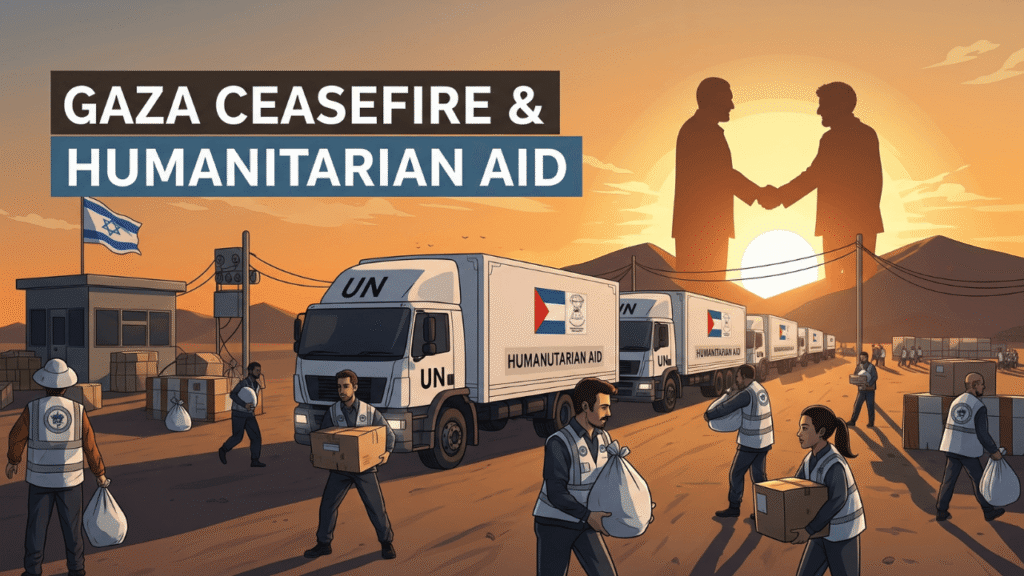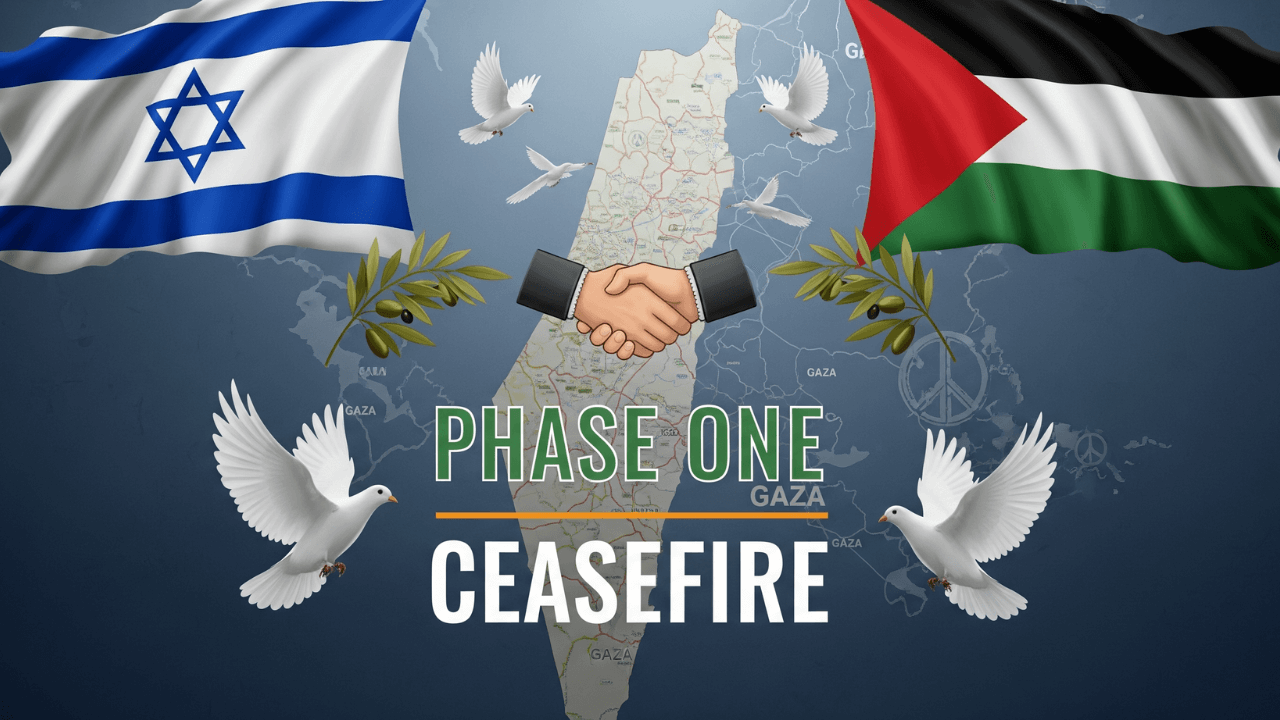The long-standing conflict between Israel and Hamas has taken a significant turn. On October 8, 2025, U.S. President Donald Trump announced that Israel and Hamas had agreed on the first phase of a ceasefire aimed at ending the two-year-long war in Gaza. The announcement has drawn global attention, with international leaders emphasizing the importance of humanitarian aid, peace, and stability in the region.
Background: The Gaza Conflict
The ongoing crisis in Gaza has left thousands of civilians displaced, with severe damage to infrastructure and essential services. The conflict between Israel and Hamas has historically flared periodically, with numerous attempts at temporary ceasefires often collapsing due to escalating violence and political tensions. The humanitarian situation in Palestine, particularly Gaza, has been dire, prompting international calls for lasting peace.
Details of the Phase One Gaza Ceasefire Deal
The Israel-Hamas peace deal marks a pivotal step in negotiations. The first phase includes:
- Hostage Release: All 20 remaining hostages held by Hamas are set to be released.
- Israeli Troop Withdrawal: Israel will pull back its troops to designated lines, reducing immediate military pressure in Gaza.
- Prisoner Exchange: Up to 1,700 Palestinian prisoners will be released within 72 hours.
- Humanitarian Access: The deal ensures vital aid reaches civilians affected by the conflict, including food, medicine, and essential services.
According to reports from Al Jazeera and NYTimes, the ceasefire is a carefully negotiated step designed to stabilize the region while leaving room for broader peace negotiations.
Hamas’ Position
While Hamas has confirmed its acceptance of the deal, the group stressed that the ceasefire does not signal a change in its overarching objectives. Officials emphasized that Gaza will continue to seek self-determination and that the ceasefire is a temporary step rather than a permanent resolution.
International Reactions

The announcement has been welcomed by global leaders. Countries like Saudi Arabia, Turkey, and members of the European Union have expressed support, urging both parties to maintain peace and facilitate humanitarian assistance. The UN and various humanitarian organizations are focused on implementing relief efforts in Gaza immediately.
Challenges Ahead
Despite the optimism surrounding the Gaza ceasefire, significant challenges remain:
- Disarmament of Hamas: Ensuring that militant activities do not resume will be crucial.
- Governance and Reconstruction: Rebuilding Gaza’s infrastructure and establishing stable governance is a long-term priority.
- Risk of Renewed Violence: Any misstep could trigger a resurgence of conflict, highlighting the fragility of the peace process.
Analysts warn that while the first phase of the Israel-Hamas peace deal is promising, sustained international support and careful diplomacy are essential to avoid future flare-ups.
Conclusion
The Gaza peace deal represents a significant diplomatic breakthrough in the Israel-Hamas conflict. The first phase ensures the release of hostages, begins prisoner exchanges, and opens humanitarian corridors in Gaza. While challenges remain, the ceasefire provides hope for stability and relief for millions affected by the conflict. The international community will closely monitor developments to ensure the momentum of peace continues.
FAQ: Israel-Hamas Phase One Ceasefire
Q1: What does the first phase of the ceasefire deal include?
A1: The first phase includes the release of all remaining hostages, Israeli troop withdrawal to designated lines, a prisoner exchange, and humanitarian aid access to Gaza.
Q2: How many hostages will Hamas release?
A2: All 20 remaining hostages currently held by Hamas will be released under the agreement.
Q3: What role does the international community play?
A3: Countries like Saudi Arabia, Turkey, the European Union, and the UN are supporting the ceasefire, focusing on humanitarian aid and ensuring compliance with the Gaza peace deal.
Q4: What challenges remain after the ceasefire?
A4: Key challenges include disarmament of Hamas, rebuilding Gaza’s infrastructure, establishing governance, and preventing renewed violence.


